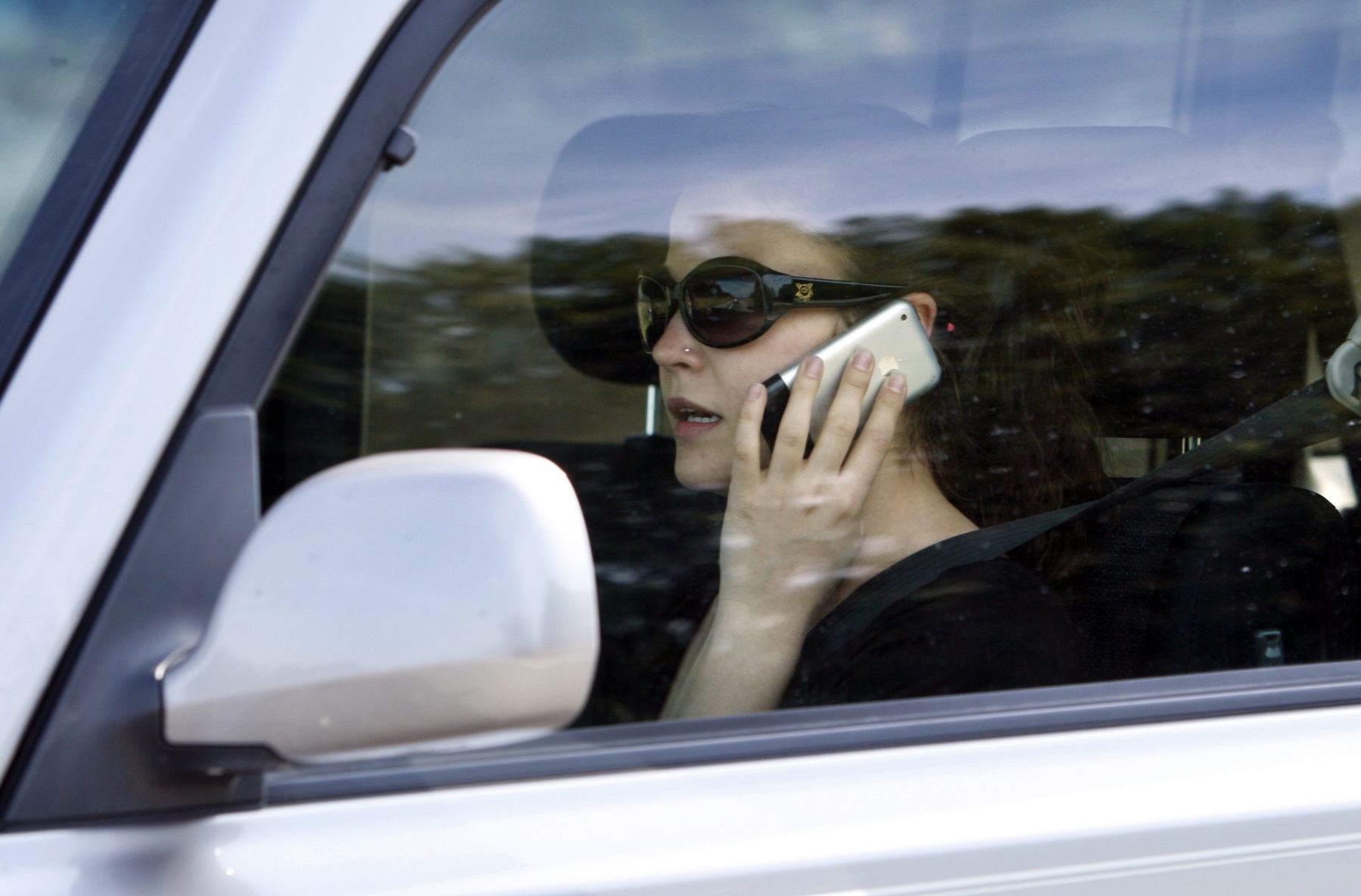State Rep. John Carson started thinking hard about distracted driving a year ago, when he heard data about car insurance rates in Georgia.
Auto premiums in Georgia had just gone up 12.2 percent in 2016, a spike that led the nation. “They were increasing at an alarming rate,’’ says Carson, a Marietta Republican.
Linked to those hikes, Carson says, are what he calls “unconscionable’’ increases in crashes and fatalities. Many of those crashes stem from distracted driving, and the biggest distractions are cellphones, says Carson.
So, after leading a House study committee on distracted driving over the past year, Carson has introduced ‘’hands-free’’ legislation that would prohibit Georgia drivers from holding their cellphones.
Fifteen states and the District of Columbia have passed such legislation for all drivers, and Carson says Georgia would be the first in the Southeast to approve such a measure.
Fatalities have gone down in many of the states that have enacted these laws, he adds.
Distractions during driving include texting and talking on cellphones, eating and drinking, talking to passengers, changing music on the radio and even grooming, experts say. And while some forms of distracted driving may involve only brief and occasional behavior, many drivers use their mobile devices habitually, almost constantly.
The AAA Foundation for Traffic Safety says distraction plays a role in nearly six out of 10 teen crashes, four times as many as official estimates based on police reports.
House Bill 673, the hands-free bill, would allow motorists to touch their phones once to begin a call or activate their navigation apps, and once to terminate the call.
Georgia already has a law banning texting while driving, but Carson says it’s not effective. “Law enforcement says they can’t enforce it,” he says, adding that police can’t know whether a driver is texting or dialing a phone number.
Nationally, the toll from distracted driving has increased as cellphone use has multiplied, experts say.
The Centers for Disease Control and Prevention reports that each day in the United States, about nine people are killed and more than 1,000 injured in crashes reported to involve a distracted driver.
In Georgia, traffic crashes and fatalities per million vehicle miles traveled increased by 36 percent and 34 percent, respectively, from 2014 to 2016. Nationally, a 2015 survey by AT&T found that 70 percent of respondents admitted to using their smartphones while driving.
Carson cites those and other statistics in explaining the impetus behind his legislation.
The bill would increase the fines and penalties assessed on drivers for distracted driving from one point on a person’s driving record to a three-point penalty.
This legislation would also increase Georgia’s current distracted-driving fine of $150 to $300 to $450 for the first citation, $400 to $650 for the second offense and $650 to $900 for the third and subsequent violation.
A second citation would result in a four-point penalty, while a third offense would lead to another four-point penalty.
Especially Deadly In Rural Areas
Of the 15 states plus the District of Columbia that have enacted “hands-free” laws, 13 saw an average 17.5 percent decrease in traffic fatalities within two years after passing and enforcing their new laws, according to the House study committee.
That committee reported, among other statistics, that:
- A driver in rural Georgia is twice as likely to be in a fatal distracted driving accident as an urban area driver (due to speeds, undivided highways, and more distance to emergency/trauma care centers).
- Georgia’s motor vehicle crashes in 2015 alone resulted in 5,860 hospitalizations, resulting in $698 million in charges; and 103,926 emergency room visits, resulting in $416 million in charges.
There were more than 1,500 motor vehicle fatalities in the state in each of the last two years. The hands-free bill would save dozens of lives every year, Carson says.
Lisa Robinson of the National Safety Council says that distracted driving has increased since the proliferation of cellphones. She also says the number of crashes due to distraction “is way underreported.”
Distracted driving is responsible for an average of 25 percent of U.S. crashes, Robinson adds.
Robinson and the Safety Council say hands-free is not the solution either, and that simply not using a phone is the best way to reduce the crash toll. “When you’re having a conversation, you [are focused] on that conversation,‘’ Robinson says.
The House study committee, though, said in its report that a complete phone ban “is simply not realistic or viable.’’ The panel added that no state completely bans the use of a mobile phone by a driver.
House Speaker David Ralston, R-Blue Ridge, recently said Carson did “great work’’ in chairing the study committee. Distracted driving “is a problem. Finding the balance on a solution’’ is a challenge, Ralston said.
Carson says his initiative “has high levels of support in the Georgia House.’’
Separately, the Atlanta suburb of Smyrna recently became the first Georgia city to ban handheld devices while driving.
“This is the DUI issue of our generation,” Carson says.
Andy Miller is editor and CEO of Georgia Health News









